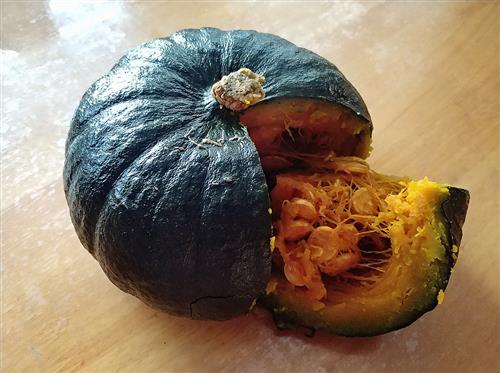Which vegetables are suitable for your baby?
The baby does not eat vegetables, how to do? The vitamins and nutrients contained in vegetables cannot be replaced by any food, but some children do not like to eat vegetables. How can this be done? Don't worry, today Xiao Bian has come up with ideas for you. There are 9 kinds of vegetables that are suitable for children to recommend. Don't miss it. 9 kinds of vegetables suitable for children to eat pumpkin Pumpkin is nutritious and comprehensive, with sugars, vitamins, proteins and 17 amino acids needed by the body. In addition, pumpkin also contains rich potassium, calcium, magnesium, selenium, iron, zinc and so on. Although the carotene contained in the pumpkin is slightly inferior to the carrot, the pumpkin is still a star containing carotene. Its carotene content is 8 to 20 times that of the watermelon and it is a good source of vitamin A. Artemisia Artemisia selengensis is a kind of vegetable with relatively complete nutrition. It is rich in vitamins, amino acids, fats, proteins, and high amounts of sodium, potassium and other minerals. Its carotene content is also relatively high, 1.5 to 30 times that of cucumber, eggplant and other vegetables. Chrysanthemum contains volatile oils with special aromas that help regulate qi, regulate appetite, and increase appetite. Rich crude fiber helps bowel movements and promote bowel movements. lettuce Lettuce contains a lot of water, dietary fiber, vitamins B1, B2, B6 and vitamin C, vitamin E and other vitamins as well as calcium, phosphorus, potassium, sodium, magnesium and a small amount of copper, iron, zinc. It can be said that lettuce is definitely an "all-around" player! carrot Carrots are high in nutritional value, rich in carotene (an average of 1.35 grams per 100 grams), and are among the best in vegetables. Carotene can be converted to vitamin A in the small intestine wall and liver cells and used by the body. Normally, 70% of the vitamin A needed by normal people is converted from carotene. Vitamin A has an important role in the integrity of the skin and mucous membranes, enhances immune function, prevents infections of the respiratory tract, urinary tract and other organs, promotes the growth and development of children, and participates in the formation of photosensitive substances in the retina. pea Pea is a nutritious food containing 23% to 25% of protein, 57% to 60% of sugar, 45% of crude fiber, and also contains a variety of minerals, vitamins and trace elements. In particular, peas contain more trace elements such as copper and chromium. Copper helps promote the baby's hematopoietic function and helps bone and brain development. Chromium is beneficial to the metabolism of sugar and fat and can maintain the normal function of insulin. The choline and methionine contained in peas help prevent arteriosclerosis; the vitamin C contained in fresh peas tops the list among all fresh beans. Lentil Lentils are summer vegetables. The nutrients are very good, also known as "meats in vegetables." Beans contain more high-quality protein, unsaturated fatty acids, and vitamin B and vitamin C. potato Potatoes are very rich in nutrients, 100 grams of potato protein content of about 2 to 2.5 grams, and potato protein quality is good, close to animal protein, it contains a special mucin, not only has the role of intestines, as well as lipid metabolism Can help cholesterol metabolism. In addition, potatoes have 8 kinds of essential amino acids, but also contains a variety of vitamins, including vitamin C content. In addition, the contents of calcium, phosphorus, magnesium, and potassium in potatoes are also high. cauliflower Cauliflower is also known as broccoli, both white and green. The nutritional value of cabbage flowers and green cauliflower is basically the same, and the content of carotene of cabbage flowers is higher than that of cabbage flowers. Cauliflower is rich in protein, fat, carbohydrates, dietary fiber, vitamins, and minerals and also contains a wealth of vitamin K that vegetables do not have. At the same time, it is still one of the foods containing the most flavonoids, and its calcium content can also be comparable with milk. tomato Tomatoes contain more than 20 carotenoids, such as alpha-carotene, beta-carotene, lutein, and zeaxanthin, and lycopene accounts for about 80% to 90%. It can be said that tomatoes are the natural repository of lycopene. In addition, tomatoes are also rich in vitamin C and vitamin E, can improve your baby's immune system. Galacto-Oligosaccharide 70% Powder Galacto Oligosaccharides Supplement,Galacto Oligosaccharides Foods,Galacto-Oligosaccharide Food Grade Sweetener Qingdao Bailong Huichuang Bio-tech Co., Ltd. , https://www.qdblcycn.com